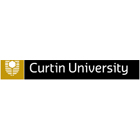Bachelor of Science (Science) (Honours)
Bachelor of Science (Science) (Honours)
This honours program enables you to build on the knowledge obtained in your undergraduate science degree. As well as studying units in your chosen discipline – applied geology, chemistry, computer science, environment and agriculture, geographic information science, mathematical sciences, physics or geophysics – you’ll examine academic research methodology and enhance…
Categories
COURSE DESCRIPTION
This honours program enables you to build on the knowledge obtained in your undergraduate science degree. As well as studying units in your chosen discipline – applied geology, chemistry, computer science, environment and agriculture, geographic information science, mathematical sciences, physics or geophysics – you’ll examine academic research methodology and enhance your analytical skills and innovative ideas. You’ll also complete a supervised research project and present an honours dissertation.
What jobs can the Science lead to?
Career opportunities can be sought across the broad spectrum of scientific research, government, industry and academia depending on your choice of subject.
This extra year at honours level is highly regarded by employers.
Honours provides a pathway to further research and entry to a postgraduate degree in your chosen area of specialisation.
What you’ll learn
Have demonstrated knowledge and understanding in a field of study that is at a level that is informed by knowledge of the forefront of the field of study, within a research context
Can apply their knowledge and understanding in a manner that indicates a professional approach to their work or vocation, and have competencies demonstrated through devising and sustaining arguments (to both specialist and non-specialist audiences) and solving advanced problems within their field of study
Understand the constructs of the scientific method and apply these principles in communicating new knowledge, including using digital technologies
Can gather and interpret relevant research data to inform judgements that include reflection on relevant social, scientific or ethical issues, including being aware of the diversity of international perspectives associated with the sciences, and how these impact upon the practice of science
Understand the global and cultural issues within their chosen area of study and how these impact on the practice of their profession
Display a very high standard of professional behaviour, including effective time management, both independently and as a team member
REQUIREMENTS
Students from different countries should have qualifications equivalent to Australian Year 12 and a scaled mark of at least 50 in English, Literature, or English as an Additional Language or Dialect.
IELTS (International English Language Testing System) – Listening, Reading, Writing, and Speaking – 6.0; Overall band score 6.5; TOEFL Score: 79 (overall); Reading 13; Listening 13; Speaking 18; Writing 21; Pearson Test of English – Listening, Reading, Writing, and Speaking – 50; Overall band score 58; TOEFL (Test of English as a Foreign Language) and PBT (Paper Based Test) – 570 and 4.5 in TWE; C1 Advanced Formerly known as Cambridge English: Advanced (CAE) 176 with 169 in Reading, Writing, Listening and Speaking. C2 Proficiency Formerly known as Cambridge English: Proficiency (CPE) 190 with 176 in Reading, Writing, Listening and Speaking.
EDUCATIONAL INSTITUTION
Curtin University is Western Australia’s largest and most culturally diverse university with Australia’s third largest international student population. Around 60,000 students from more than 130 countries study a Curtin degree, at locations including Perth, Margaret River, Kalgoorlie, Sydney, Malaysia and Singapore. Our cultural diversity adds a rich and valuable dimension to the campus atmosphere, preparing all graduates to live and work effectively in an increasingly global environment. We offer a range of industry-aligned undergraduate and postgraduate courses in business, humanities, health, engineering and related sciences. We also have a long-standing focus on Aboriginal and Torres Strait Islander education and culture, supported by our Centre for Aboriginal Studies.Curtin is widely recognised for its practical research that is focused on solving timely, real-world problems. In recent years our research activity has grown significantly, driving our rapid rise up the international university rankings.As a university that never settles, we will continue to develop existing partnerships and establish new ones in areas relevant to our research and teaching.




